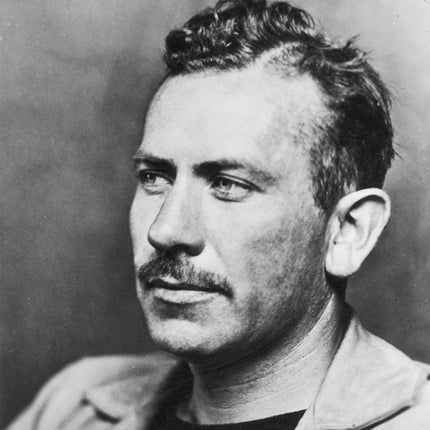In America: Travels with John Steinbeck by Geert Mak, book review: Slice of life on a small island
Americans are getting poorer, they’re divided by geography, politics, living standards, yet national myths of individualism and exceptionalism endure

In 1960, John Steinbeck set out from New York to drive across America with his poodle, Charley, in the passenger seat.
The author of the classic novels The Grapes of Wrath and Cannery Row was searching for the “real America”, immersing himself in its landscapes, talking to people and describing his experiences in a celebrated account, Travels with Charley. Fifty years on, the Dutch journalist and historian Geert Mak retraces the route, through the Midwest, down the coast to Steinbeck’s native California, across Texas towards New Orleans.
Mak questions the veracity of Travels – Steinbeck probably embellished events and invented conversations – but considers it his “last major work”. Steinbeck’s trip coincided with John F Kennedy and Richard Nixon vying for the presidency; the consensus culture of the Fifties would soon give way to the upheavals of the Sixties. Americans were prosperous but Steinbeck sensed an “all pervading nerve gas of immorality”. Steinbeck faced personal demons and Mak says the ageing author’s project was an “attempt to drown out his decline”. However, much of what Mak sees in 2010 makes him similarly pessimistic.
Americans are getting poorer, they’re divided by geography, politics, living standards, yet national myths of individualism and exceptionalism endure. Retirees “amusing themselves to death” are contrasted with a cashier in Phoenix: “As she packed our shopping, I looked at her wrinkled, slightly trembling hands, then up at her face. She must have been approaching 80.”
Mak makes poignant observations, and shares revealing encounters, but they’re frequently swamped by his insistence on supporting ideas with data. Reading him is like travelling with somebody very sensible – fairly interesting but lacking excitement.
From Alexis de Tocqueville to Jonathan Raban, Mak quotes the European writers who have traversed America before him. However, where Raban approaches his subjects from original angles, taking readers on intimate voyages to obscure corners, Mak favours straightforward contextualising: “The city was named after Chief Seattle …” Steinbeck takes a backseat as Mak fills in swathes of history, bolstering his liberal outlook with statistics on inequality and the folly of American foreign policy. Liz Waters’ translation from the Dutch is spotless but Mak’s flat delivery of facts sometimes sounds like his satnav has hijacked his narrative voice.
Join our commenting forum
Join thought-provoking conversations, follow other Independent readers and see their replies
Comments